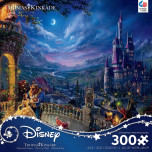We use cookies to make your experience better. To comply with the new e-Privacy directive, we need to ask for your consent to set the cookies. Learn more.
Written to meet the GCE Ordinary Biology syllabus from the Ministry of Education Singapore, Biology Matters provides high schoolers a secular, college preparatory biology option. Topically, students learn the characteristics of life, principles of biology, hum and plant life processes including nutrition and water/food transport systems, plant reproduction, human organ systems including reproduction, heredity, molecular genetics and ecology. The anatomy and basic physiology of reproduction is explained with detailed drawn illustrations and includes an introduction to sexually transmitted diseases and birth control. Numerous components are necessary including the Textbook, Teacher’s Planning Guide, and Workbook. Other optional learning supports include the Perfect Guide, Structured Questions, Practical Guide, and related Teacher Editions. Please note, some of the labs may be difficult to complete in a home setting. Families may wish to add a home lab friendly guide like Experiences in Biology or Illustrated Guide to Home Biology Lab Experiments.
























